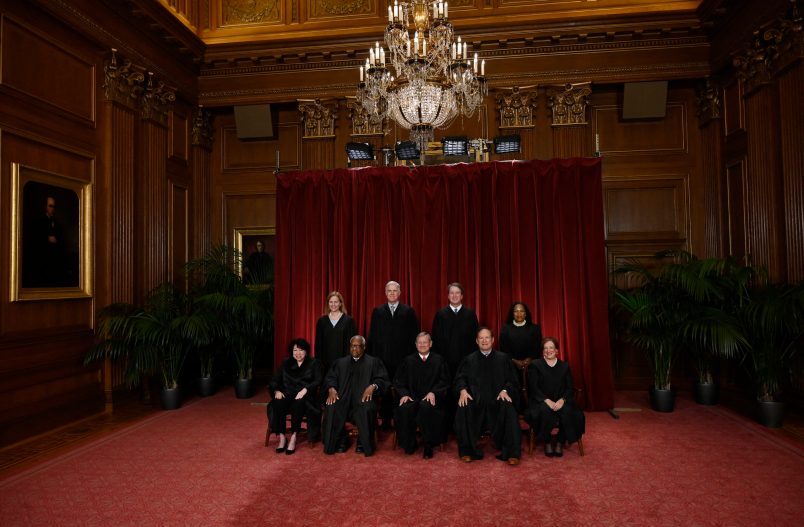The Supreme Court asked for additional briefs Thursday as it figures out how to go forward with a major elections case out of North Carolina, a redistricting case centered around a popular right-wing idea: the independent state legislature theory.
After oral arguments last December, the Court was mulling its decision when the North Carolina Supreme Court — newly dominated by conservatives after the 2022 midterms — decided to rehear the case. The dissenting state court liberals called it a “radical,” nakedly political “power grab.”
That move also put the Supreme Court’s involvement in the case in limbo. If the state court reversed its decision and let the Republican-passed gerrymandered maps stand, it would seem to moot the crux of the case that the Supreme Court had been in the middle of deciding.
On Thursday, the Supreme Court asked the parties involved for further guidance.
“The parties and the Solicitor General are directed to file supplemental letter briefs addressing the following question: What is the effect on this Court’s jurisdiction…of the North Carolina Supreme Court’s February 3, 2023 order granting rehearing, and any subsequent state court proceedings?” the Court wrote in an order. The briefs are due by March 20.
Experts aren’t convinced that the Supreme Court will drop the case, even if the state court does reverse as expected.
The case is the highest profile yet to focus so heavily on the independent state legislature theory, which holds that state legislatures alone — to the exclusion of every other branch of state government, including state constitutions, state courts and gubernatorial vetoes — get to govern federal elections.
The theory could have enormous ramifications for U.S. elections, especially as Donald Trump’s big lie conspiracy theory continues to permeate Republican politics.
Some experts told TPM they think the Court could still rule on the independent state legislature theory piece, even if the underlying redistricting conflict is resolved by the state court.
Read the new order here:



